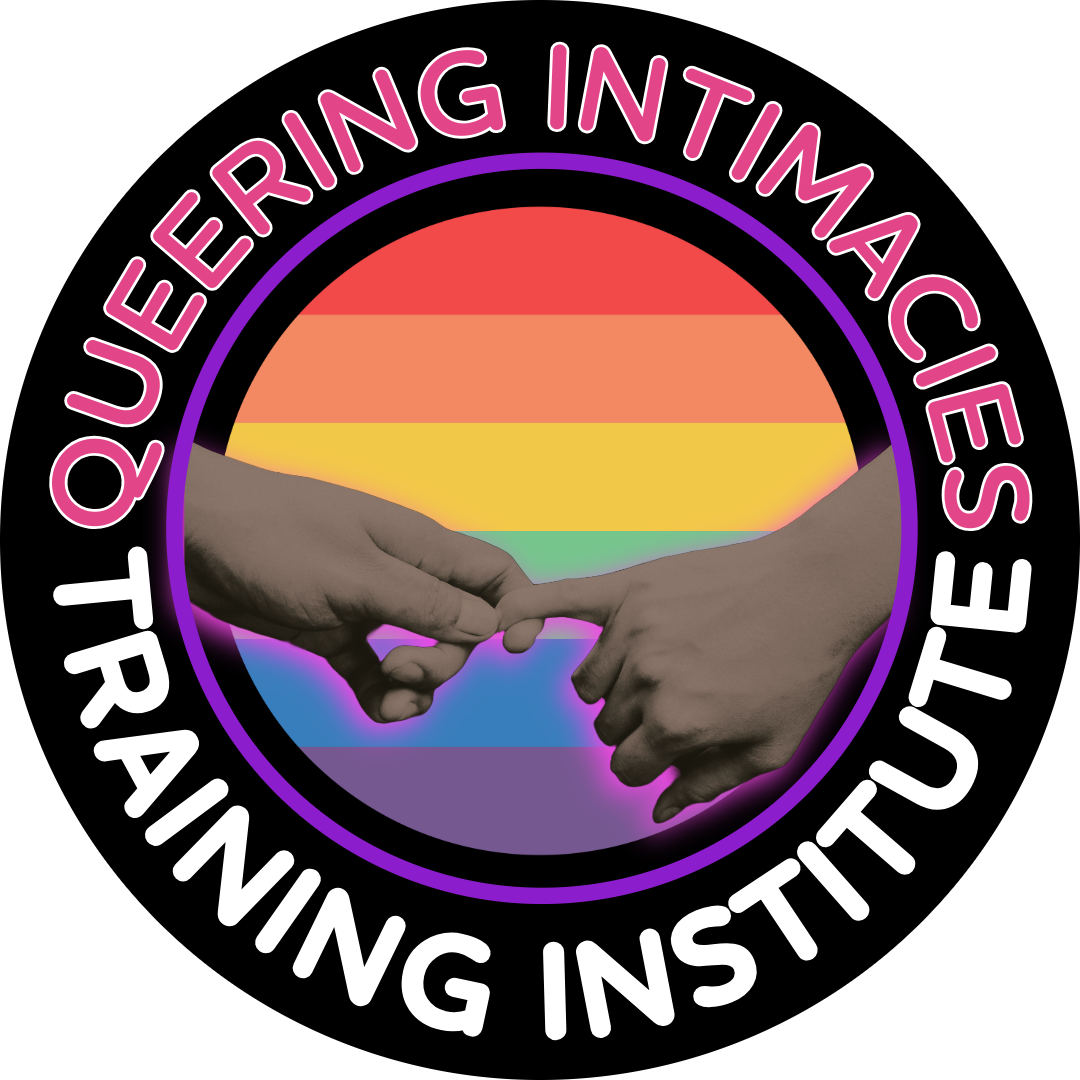Lucie Fielding, PhD, LMHC, LPC (she/they; elle/iel)
Emotional Storms: Solidarity, Mutual Entanglement, and the Queer Erotic
Course Description:
Many of us may want desperately to explore erotic embodiment and have mind-blowing sexual/sensual/kink experiences, but actually doing so can feel tremendously edgy, risky, and frightening—particularly given that most of us hold various forms of trauma in our bodies.
How, and under what (pre-)conditions or frameworks might we turn toward, embrace, and meet each other, during, and after, transformative experiences, and in the face of the risk of rupture, discomfort, and uncertainty?
Conventional wisdom—particularly in most trauma modalities—is to work to first help a client establish an internal sense or feeling of safety in the body or within one’s system (to draw on the language of “parts work”). This highly interactive, three-hour workshop departs from this conventional wisdom to first problematize the discourse of safety, and then propose as a risk-attuned alternative: solidarity. Feeling a keen sense of solidarity—whether with providers or with partners or within our systems—in concert with an honoring of our neurobiological defenses allows for the rich, emotionally transformative, and pleasure-soaked experiences of erotic embodiment we and our clients so deeply yearn for.
Learning Objectives (3):
By the end of this course, attendees will be able to:
Describe the “safety axiom” and at least (2) critiques of the discourse of safety.
Define the concepts of “solidarity” and “mutual entanglement.”
Apply the concept of “de-armoring” to supporting a client, cis or trans, in nurturing erotic embodiment.
Select References:
Albury, K., Dietzel, C., Pym, T., Vivienne, S., & Cook, T. (2021). Not your unicorn: Trans dating app users’ negotiations of personal safety and sexual health. Health Sociology Review, 30(1), 72–86. https://doi.org/10.1080/14461242.2020.1851610
Aversa, I., Coleman, T., Travers, R., Coulombe, S., Wilson, C., Woodford, M. R., Davis, C., Burchell, D., & Schmid, E. (2022). “I’m Always Worried”: Exploring Perceptions of Safety and Community Inclusion Among Transgender People. International Journal of Community Well-Being, 5(1), 37–54. https://doi.org/10.1007/s42413-021-00123-9
Podolan, M., & Gelo, O. C. G. (2023). The functions of safety in psychotherapy: An integrative theoretical perspective across therapeutic schools. Clinical Neuropsychiatry: Journal of Treatment Evaluation, 20(3), 193–204. https://doi.org/doi.org/10.36131/ cnfioritieditore20230304
Ross, K., Li, P., & Call-Cummings, M. (2023). Solidarity as methodological praxis. Qualitative Research, 23(5), 1181–1202. https://doi.org/10.1177/14687941221098919
Saketopoulou, A. (2023). Sexuality Beyond Consent: Risk, Race, Traumatophilia. New York University Press.
“Whatever it is, the way you tell your story online can make all the difference.”
— Quote Source



